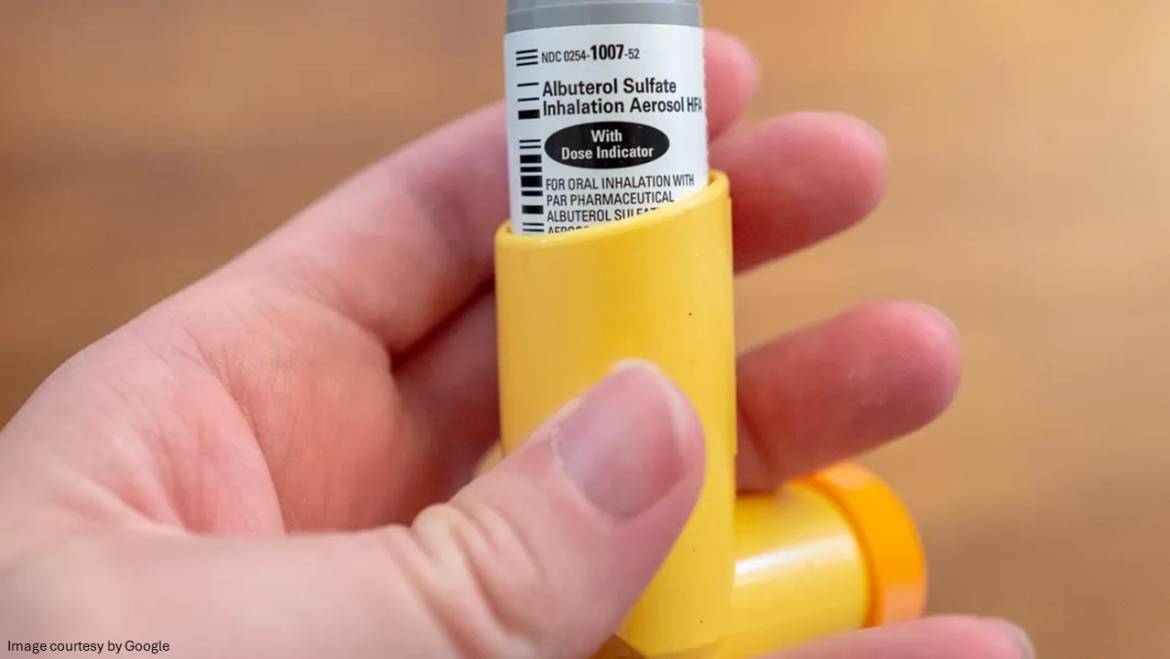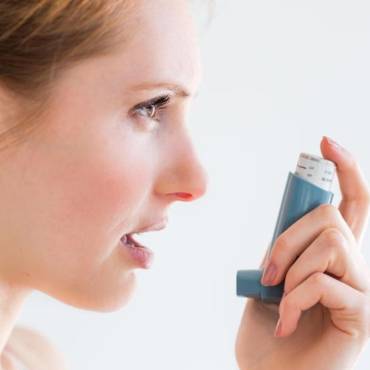Albuterol, also known as salbutamol, is approved by the US FDA (Food and Drug Association) for treating and preventing acute or severe bronchospasm in patients with reversible obstructive airway disease, including exercise-induced bronchospasm. It is a commonly prescribed bronchodilator drug used to manage respiratory conditions, including asthma and exercise-induced asthma. This blog covers the appropriate uses, benefits, mechanisms, contraindications, and precautions associated with albuterol to ensure its safe and proper utilization.
Benefits
What is albuterol? Albuterol sulfate inhalation is an extremely effective medicine for relieving bronchospasms caused by asthma in children ages 2 to 12 years. Bronchospasm is defined as the tightening and swelling of the muscle around the airways in the lungs. What does albuterol do? Well, it can help to relax these airway muscles for up to six hours. This helps your child to breathe more easily. Is albuterol a steroid? No, it is a beta-agonist that acts by attaching to beta receptors in your airways. This causes the muscles in the airways to relax, ultimately making it easier for you to breathe.
Warnings & precautions
Do not give your child an albuterol sulfate inhalation solution if allergic to salbutamol, albuterol, or any of its inactive ingredients. Let a doctor know about all your child’s medical conditions, including if he has high blood pressure, heart problems, diabetes, seizures, or a thyroid problem called hyperthyroidism. Let the healthcare specialist know your child’s medicines, including prescription and non-prescription medicines, vitamins, and herbal supplements. Albuterol inhalers and some other medications can affect each other working and contribute to serious adverse effects. Especially tell your healthcare specialist if your child is using:
-
- Any short-acting bronchodilator medicines (also called rescue inhalers)
- Certain diuretic medicines (water pills)
- Epinephrine
- Digoxin
- Medications called beta-blockers (used for high blood pressure and heart problems)
- Digoxin
Available dosage forms and strengths
Albuterol sulfate is available in various dosages and strengths. An albuterol sulfate inhalation aerosol-metered-dose inhaler delivers 90 mcg actuation, equivalent to 108 mcg of albuterol sulfate. A powder-metered-dose inhaler provides the same values as the aerosol, metered dose inhaler. The medication can also be used through a nebulizer; use an albuterol nebulizer only under the supervision of a healthcare specialist.
Dosage and administration
The usual albuterol dosage for adults and children twelve years and older is two inhalations repeated every 4 to 6 hours to treat acute bronchospasm episodes or prevent asthma symptoms. More frequent usage or a larger number of inhalations every four hours may be adequate.
Each actuation of Albuterol sulfate inhalation aerosol delivers about 108 mcg of albuterol sulfate from the actuator mouthpiece. Prime the inhaler before using it for the first time. In cases where the inhaler has not been used for more than two weeks, check it by releasing a few test sprays into the air; be sure to spray away from the face.
If a previous dosage regimen fails to provide the usual response, this indicates that asthma requires a re-evaluation of the patient and the treatment, providing special consideration to the possible need for an anti-inflammatory treatment called corticosteroids.

Maintain proper usage of this product and prevent medication buildup and blockage; clean the plastic mouthpiece. Wash the mouthpiece and air dry thoroughly at least once a week. If there is a blockage in a mouthpiece, washing the mouthpiece will help remove the blockage.
Please speak to your healthcare provider if you have doubts about the albuterol inhaler dose.
Usage instructions for oral inhalation
Before using Albuterol sulfate HFA inhalation aerosol, carefully read the instructions:
-
- Shake the inhaler well every time before you use it. After removing the cap from the mouthpiece, check it for foreign objects before usage. Make sure the canister is fully inserted into the actuator.
- It is always advised to prime the inhaler before using it, and you can do it by releasing three test sprays into the air, away from your face.
- Breathe completely through the mouth, sending out as much air from your lungs as possible. Keep the mouthpiece in your mouth, holding the inhaler upright and closing your lips around it. Keep your tongue below the mouthpiece. When breathing deeply and slowly through the mouth, completely depress and immediately release the top of the canister with your index finger. Before breathing out, remove the inhaler from the mouth and release your finger from the canister.
- Hold your breath for up to ten seconds or as long as possible. Before breathing out, remove the inhaler from your mouth and release the finger from your canister.
- If your healthcare provider has prescribed additional puffs, wait a minute, shake the inhaler, and repeat the above mentioned steps.
Possible side effects
Commonly reported side effects of albuterol sulfate inhalation are a fast or irregular heartbeat, shakiness, nervousness, or chest pain.
Worsening of the tightening and swelling muscles around your airways (bronchospasm). This albuterol side effect can be life-threatening. Seek immediate medical help if breathing is not helped or worsens during the albuterol sulfate hfa treatment.
Symptoms of a serious allergic reaction include:
-
- Swelling of your child’s eyelids, face, tongue, lips, throat, and trouble swallowing
- Hives, rash
- Worsening of breathing problems such as chest tightness, wheezing, shortness of breath, and chest tightness
- Shock (loss of blood pressure and consciousness)
This information guide summarizes the most important information about using Albuterol sulfate inhalation. If you would like more information, speak to your healthcare provider.
admin
Latest posts by admin (see all)
- What is Triluma Cream? Uses, Benefits, and How It Works for Skin - December 26, 2024
- What Causes Dark Spots? Understanding the Science of Hyperpigmentation and How Skin Lightening Products Help - December 26, 2024
- Tretinoin Gel vs. Cream: Which Formulation is Right for Your Skin? - December 20, 2024



